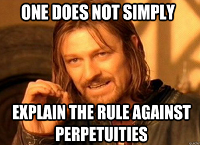
Veil v. Bennett (Nev. Supreme Ct. – Apr. 30, 2015)
Veil became Sheriff of Lyon County, Nevada in 2007. At that time, Sheriff’s Office employees entered information from all arrest warrants delivered to the Sheriff’s Office into various electronic databases. In 2009, Sheriff Veil began trying to shift part of this task to the justice courts of Lyon County. Sheriff Veil proposed that Sheriff’s Office employees continue to enter information into the databases from arrest warrants issued by the justice courts based on Sheriff’s Office investigations. Sheriff Veil further proposed, however, that the justice courts enter information into the databases from all other justice court-issued arrest warrants, such as warrants arising from defendants’ failure to appear.
The Justice of the Peace of Walker River Township agreed to this arrangement. Bennett and Vecchiarelli, Justices of the Peace of Canal Township and Dayton Township, respectively, did not. At some point, the Sheriff’s Office ceased entering information into the databases from arrest warrants issued by the justice courts that were not based on Sheriff’s Office investigations.
Acting in their official capacities as Justices of the Peace, Bennett and Vecchiarelli petitioned the district court for a writ of mandamus to compel Sheriff Veil to enter information from all arrest warrants delivered to the Sheriff’s Office into the databases. The district court granted the petition, explaining that NRS 248.100 imposed on Sheriff Veil a duty to execute warrants, and that in the modern age, this duty included entering warrant information into electronic databases. Sheriff Veil appealed.
The issue is whether NRS 248.100(1)(c), which requires sheriffs to execute warrants, also imposes upon sheriffs the duty to enter warrant information into electronic databases.
According to NRS 248.100(1)(c), “[t]he sheriff shall … execute the process, writs or warrants of courts of justice. .. when delivered to the sheriff for that purpose.” NRS Chapter 248 does not define “execute,” but Black’s Law Dictionary defines the word as “[t]o perform or complete.” In light of the plain meaning of “execute” as that term relates to arrest warrants, the Nevada Supreme Court concluded that NRS 248.100(1)(c) unambiguously requires sheriffs to arrest defendants named in arrest warrants, but imposes no duty to enter warrant information into electronic databases.
The Court noted that Sheriff Veil must act diligently in the performance of his official duties, including his duty to execute arrest warrants by arresting defendants. The Court reasoned that it is within Sheriff Veil’s discretion, however, to determine how best to execute arrest warrants under NRS 248.100(1)(c), and the district court improperly attempted to control the exercise of that discretion.
Thus, the Court determined that while entering warrant information into electronic databases may further the objectives of both law enforcement and the justice system, NRS 248.100(1)(c) neither contemplates nor assigns this task. Therefore, it is the role of the Legislature, not the court, to determine which entity is best suited to this task. Accordingly, the Court concluded that the district court abused its discretion by ordering Sheriff Veil to enter warrant information into electronic databases, and reversed the district court order granting the petition for a writ of mandamus.









